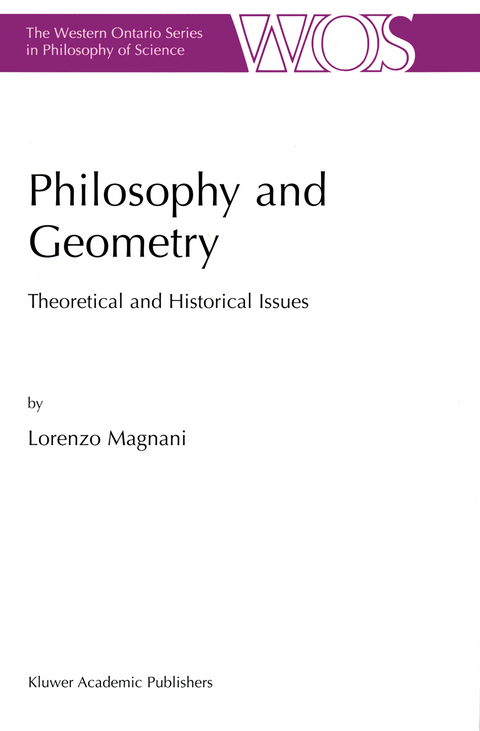
Philosophy and Geometry
Springer-Verlag New York Inc.
978-1-4020-0241-0 (ISBN)
1 At the Origins of Geometrical Knowledge.- 1. Conceptual space, mental spatial models, latent geometry.- 2. Figures, symbols, and the Greek origins of geometry.- 3. The ritual origin of geometry.- 2 Geometry: the Model of Knowledge.- 1. Sensibility.- 2. Imagination.- 3. Understanding.- 4. Pure apprehension and geometry.- 5. Empirical apprehension and empirical schematism.- 6. Geometrical schemata and constructions: models of philosophy.- 7. Space as the object of geometry.- 3 Constructions, Logic, Categories.- 1. Space and logic.- 2. Intuition, construction, and the logic of singular terms.- 3. Pure and applied geometry.- 4. Why is geometry synthetic?.- 5. Categories and Axioms of Intuition.- 6. Mathematical schematism.- 4 The ???????? in Ancient Geometrical Knowledge.- 1. Geometry, drawing, and writing.- 2. Mathematical objects.- 3. Geometrical reasoning.- 4. The science that studies shapes: geometry.- 5. “History of geometry” and “elements” of geometry.- 5 Geometry and Convention.- 1. Crude facts, relations, conventions.- 2. Pure and applied geometry.- 3. Sensible, geometric, and physical space.- 4. Geometrical intuition.- 5. Geometrical apriorism and empiricism.- 6. The genesis of geometry.- 7. The interchangeability of geometries.- 8. Withdrawing conventions.- 9. Withdrawing principles of coordination.- 6 Geometry, Problem Solving, Abduction.- 1. Geometrical constructions and problem solving.- 2. Model-based and manipulative abduction.- 3. Geometrical construction is a kind of manipulative abduction.- 4. Diagrams, abduction, and deductive reasoning.- 7 Geometry and Cognition.- 1. Geometry of visibles, protogeometry, manipulations.- 2. At the origins of geometrical knowledge II.- 3. Non-conceptual and spatial abilities.- 4. Computational geometricalconstructions.- 5. Spatial imagery.- 6. Logical models of diagrammatic reasoning.- References.- Author Index.
| Reihe/Serie | The Western Ontario Series in Philosophy of Science ; 66 |
|---|---|
| Zusatzinfo | XX, 256 p. |
| Verlagsort | New York, NY |
| Sprache | englisch |
| Maße | 155 x 235 mm |
| Themenwelt | Geisteswissenschaften ► Geschichte |
| Geisteswissenschaften ► Philosophie ► Allgemeines / Lexika | |
| Mathematik / Informatik ► Mathematik ► Geometrie / Topologie | |
| Naturwissenschaften | |
| ISBN-10 | 1-4020-0241-6 / 1402002416 |
| ISBN-13 | 978-1-4020-0241-0 / 9781402002410 |
| Zustand | Neuware |
| Haben Sie eine Frage zum Produkt? |
aus dem Bereich


